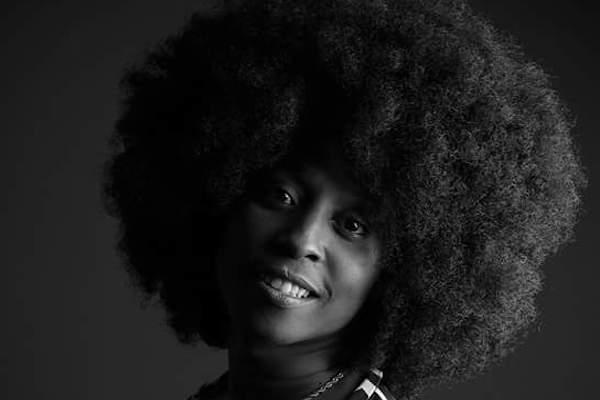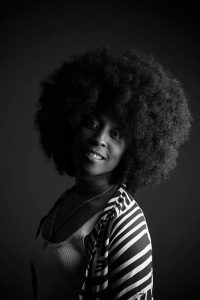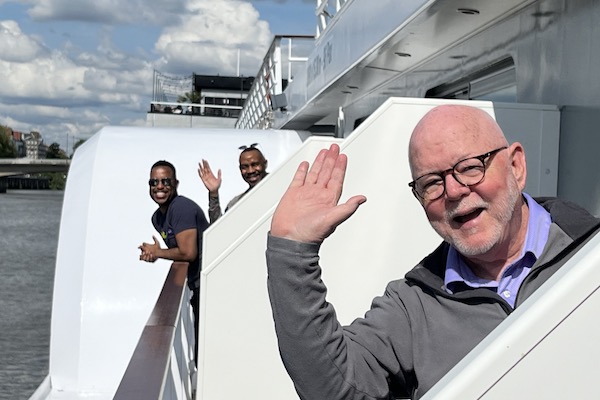
Queer Women Respond to the Election of Donald Trump
November 11, 2016
TAME.: A Queer, Feminist Twist on a Shakespeare Favorite
November 14, 2016Tiommi Luckett, 39, arrived early for her flight out of Little Rock, AR, checked in and joined the line for security. Luckett’s job, blogger and Communications Coordinator for The Well Project, requires her to travel a lot. She knows the drill – hand luggage on the belt, shoes and jacket off and computer and liquids out.
“I have to make sure that everything is situated right. For me it’s more than making sure there’s no change in my pocket and my jacket’s off,” said Luckett. “I have to make sure my body doesn’t go off.”
Why? Because she is a transgender woman.
As she waits for her turn through the scanner, she can feel the fear building, swelling and growing. “Every time I go the airport I’m thinking, today is the day,” said Luckett.
From July 2015 -2016 712 million people have flown around the country and internationally, according to the Bureau of Transportation Statistics. Of those millions, many of the men and women nervously standing – feet aligned with the yellow prints and hands crossed above their head – are transgender.
Traveling is especially and sometimes unavoidably challenging for transgender human beings who just want to get on the plane. For those who are waiting for their gender reassignment surgery or, like Luckett, have no desire to have the operation, going through body scanners have been especially trying. The reason: TSA’s algorism does not account for transgender people who do not conform to the program’s idea of what a man or woman should look like.
There is no transgender button for the agent to press, only a pink one and blue one. So transgender men and women are often flagged for anomalies and patted down. The four most recent times Luckett has been flagged for one of these, it has happened at smaller airports.
TSA’s media office says they have provided training to officers across the country, which included screening of transgender passengers. When possible they get transgender instructors. They did not, however, address the continuing difficulties these passengers face in tiny airports.
Attempts to contact a policy specialist within the National Center for Transgender Equality have been unsuccessful.
Luckett assumed the scanning position and waited to be cleared. The large bar swung around, checking her for dangerous objects and anomalies. Unfortunately, it found one.
“A TSA agent said that my groin caused an alarm,” says Luckett. “I said oh, it’s probably because I’m trans.” Luckett was asked if she would prefer a man to perform the security check. She preferred a woman. The agent asked if she wanted to go into one of the rooms. “I’m not trying to miss my flight,” she said, “so let’s do this right here.”
And so it began.
In a survey by the National Center for Transgender Equality 11 percent of their 7,500 person sample reported experiencing unequal treatment while trying to catch a flight and 17 percent experienced verbal harassment or disrespect.
These extra screenings can out transgender people against their will and in an environment that is not exactly friendly. In states like Arkansas, where federal transgender equality directives from the president have been ignored, the challenges faced by transgender people are prevalent. The community there is small, only 3.5 percent of the population identified as lesbian, gay, bisexual or transgender according to Statista. So a traveler being outed by security before heading to one of the airport’s 12 gates is less than ideal.
Pat-downs, whether public or private, are humiliating, said Luckett. It is also the only alternative to the scanner. When they are performed by agents who are not accustomed to transgender men and women, or appear to be so, this already unwanted search feel even worse. Another transgender woman, and friend of Luckett’s, reported having her hair “snatched off” while enduring demeaning comments from TSA agents in a private room of a Florida’s small Fort Walton Airport.
Both the removal of her hair and comments are against TSA’s regulations.
“I felt violated,” said Luckett. “She rubbed every inch of me. Then I felt like some kind of criminal.” Luckett was then and still is understanding of the agent’s job and appreciated that she remained kind and professional. This did not make her feel any better as her breasts, groin, butt, abdomen and legs were publically checked.
The Luckett was told to lift her hair, her wig, so that the agent can see beneath. This, again, is a violation of TSA’s regulation. An agent can pat it down but the hair should not leave its owner’s head. “It’s very terrifying to actually go through the airport,” she said.
There is one way that Luckett can to go through the scanner without the pat-down.
It involves tucking – where Luckett pulls her genitals forward, pulls on some tight underwear to hold them in place, following those are a tight pair of jeans and a long loose shirt.
“Either way, when I go to the airport, it’s still frustrating and stressful,” says Luckett.
After every flight all Luckett wants to do is sleep. “I put so much energy into not bringing attention to myself,” she says. “My groin is setting off an alarm? So then I’ve been reduced again to nothing but genitalia.
“It’s not my fault I can’t put transgender as a gender marker on my driver’s license.”






